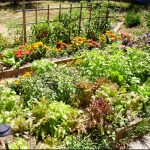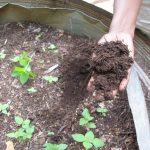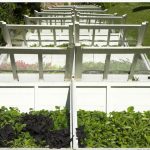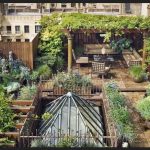How to Improve Your Skills in the Garden
Table of Contents
The hobby of gardening is a very seasonal activity, and you may find yourself with nothing much to do during the cold months of winter. Luckily, this makes it the perfect time of year to brush up on your skills and learn about gardening as a theory. After all, there is always something to learn about this dynamic hobby, even if you’re knee-deep in the snow.
These are some good ways you can get better at gardening, even if the only shovel you might be touching for the next few months is a snow shovel:
Spend Some Time Reading
Remember those books on gardening that you bought or borrowed from the library, but never got around to reading? Get around to it now! Hobbies usually only stay interesting when you evolve and learn new things, and there’s no better source on new gardening techniques and theories than books written by experts on the subject. Read about a new gardening skill in the winter and prepare yourself to practice it once spring rolls around.
If books aren’t your thing, there is plenty of information all over the Internet that you could absorb to improve yourself as a gardener. Horticulture clubs or departments at a local school can also offer a wealth of knowledge.
You can also read gardening magazines, and visit gardening websites. Another great resource on the web is the Horticulture departments of universities. Some of these have a vast amount of good information. Here are a few websites:
Communicate With Other Gardeners
There is much to be learned about growing your own garden from your fellow gardeners, both those more experienced and those who are more green. You see, every person has their own unique style and technique that you could possibly adapt to your own. When I was young, I would listen to my grandfather swapping information with his friends about his garden, and not only was it fun and entertaining, it was also hugely informative, even when they shared their failures.
It’s possible that you don’t know of any other gardeners, in which case it may be time to make some friends! Look to see if there is a club in your area, or even if there are gardening classes or seminars available at a nearby nursery. If you have a tendency to wander around on foot in your neighborhood and see someone tending to their garden, strike up a conversation. Maybe you’re the quiet type and feel awkward breaking the ice with strangers, but trust me when I tell you that these sorts of connections pay dividends.
If you’re not into the face-to-face stuff, you might also join an online group of some kind. There are plenty of other gardeners on Internet forums or social media sites with whom you could connect. You can just “lurk” and read all of the information as well, but if you’re feeling social, go ahead and post a question or two; most likely, there are plenty of people who would be willing to help you.
Here are a few of the forums:
- GardenWeb – Vegetable Gardening – This forum is chocked full of very knowledgeable and helpful folks. GardenWeb also features many other forums that are also loaded with information – from composting to seed starting and everything in between.
- Helpful Gardener Garden Forum – To be honest, I have not visited this forum that much, but when I have I found some very good advice and helpful people.
- Dave’s Garden – Vegetable Gardening Discussion – Dave’s Garden is a very popular and helpful discussion forum. Its many members are very knowledgable and heplful, but Dave’s Garden is a subscription-based forum, costing $19.95 per year. The price is well worth it for a new gardeners since the site has plant profiles, and many other very useful features.
Have Some Practice
The best way to get good at something is to just do it! I’ve had plenty of people use the excuse that they “don’t know how” to garden to put off getting started. The fact of the matter is that you can never really know how to do something unless you do it. Mistakes will happen, but that’s just a natural part of the learning process, and as soon as you get out there and start making mistakes, you will start to see small successes as well. It’s hard to garden during the winter, of course, but there are ways around this for the determined gardener. For example, it might not be such a bad idea to build your own indoor garden. There are plenty of vegetables that will thrive just fine inside the house, and this way you can enjoy them fresh during any season.
Experiment
Experimenting with different methods and techniques is a great way to improve your gardening skills. How do you know how a certain plant may or may not react to something unless you try it out? I would not recommend doing this to your whole garden, but you can devote a couple plants in your garden to experimentation. Try different fertilizers, a different watering schedule, new pruning techniques, or maybe try a different cultivar of a particular vegetable. The possibilities are virtually endless. Experimenting can go a long way towards learning something new.
Share
Sharing is not necessarily a skill or knowledge, but it is a must-do when gardening. Whether you share you expertise in a subject, or share your vegetables with a neighbor – sharing is a very rewarding part of gardening. A fellow gardener and I have a friendly competition on who has the best looking and best tasting tomatoes each year. We gather up our best tomatoes and share with one another. We talk about how we grew them, what fertilizers we used, how we pruned or did not prune – all while sitting down to a big plate of sliced tomatoes. It’s one of the biggest things I look forward to each year.
Source: VeggieGardener


















